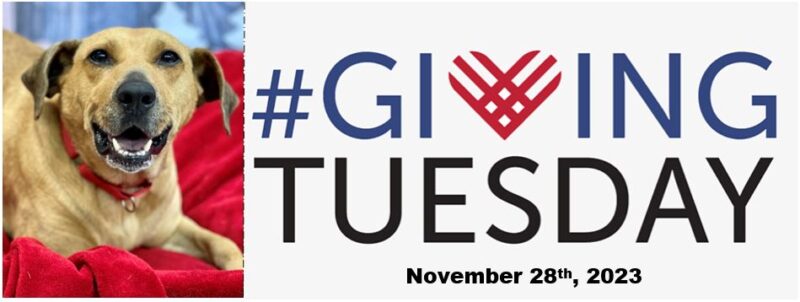We are experiencing technical difficulties!
Are phones down! We apologize for any inconvenience this has caused. If you need to reach us, please email info@mackpack.info. Thank you!

What is Giving Tuesday?
On Tuesday, November 28th, 2023, millions of people will come together to support the causes they believe in and the communities in which they live. We are appreciative of any donation you are able to give to help support Mackenzie’s Animal Sanctuary on November 28th, 2023.
We aim to raise $15,000 to give our dogs and many more ‘The Gift of Health & Wellbeing’. Help us reach our goal by donating today to our Facebook Giving Tuesday Fundraiser page.
Not only are you helping the dogs that come to Mackenzie’s get the medical care they deserve, but you are also giving dogs a second chance at finding a ‘Loving Forever Home & Family’.
From all of us at Mackenzie’s, thank you for your continued support!

~The Gift of Health & Wellbeing~
We believe all dogs should have a healthy second, third…or fourth chance at finding a forever home. Your support is vital! Not only are you helping the dogs that come to Mackenzie’s get the medical & mental care they deserve, but you are also giving them a second chance at finding a ‘Loving Forever Home & Family’.
Continue reading »VOLUNTEERS ARE LOVE IN MOTION!

Click here to learn more, we hope you’ll join our team!









































 Would you like a donation box at your place of work? If so, please call the office today at: 616-693-2490 Ext. 3
Would you like a donation box at your place of work? If so, please call the office today at: 616-693-2490 Ext. 3



